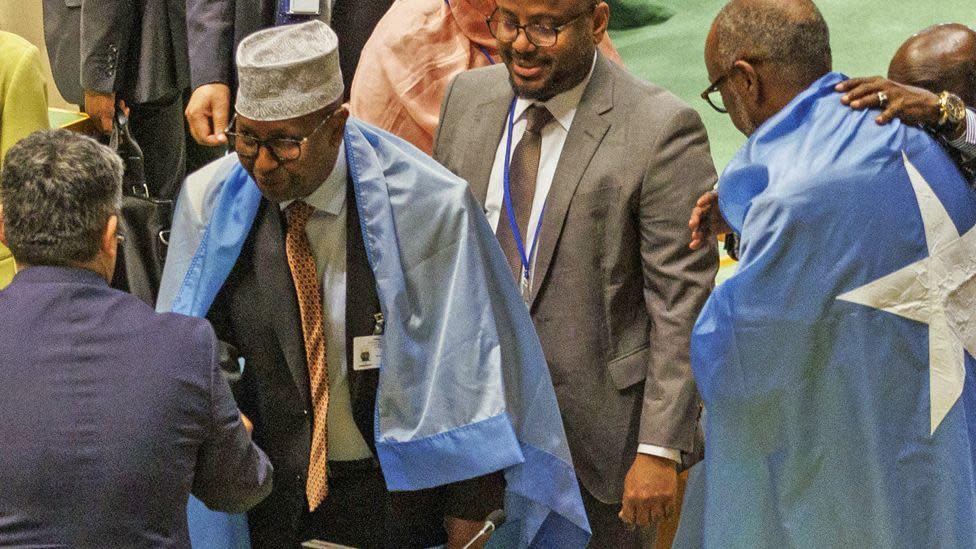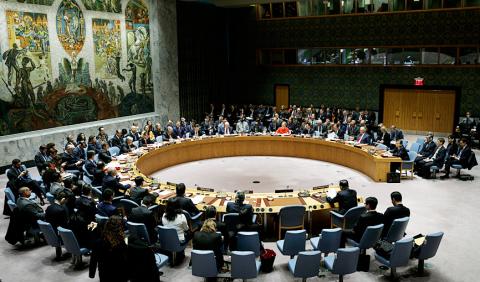- by Newsroom
- October 12, 2023
Click the link below to join Our WhatsApp group for daily brief on current trends in the country.
Join Here!
Loading

Somalia has won a non-permanent seat on the United Nations Security Council – hailed as a significant step for the worn-torn nation. It will be the first time the country, which descended into civil war more than 30 years ago, has held the position since the 1970s. The top table at the UN determines how the organisation should respond to conflicts around the world. Analysts say Somalia’s battle to bring an end to its turmoil and its fight against Islamist militants will help inform the UN’s decisions
There are 10 rotating non-permanent members on the council, along with the five permanent members – the US, the UK, France, China and Russia.
To win a seat, which carries much influence in world affairs, a country needs to secure the support of at least two thirds of the General Assembly delegations that are voting.
Somalia was elected along with Denmark, Greece, Pakistan and Panama to serve for two years from January next year.
It bagged the seat allocated to the East Africa region unopposed and went on to win 179 votes in a secret ballot in the 193-member General Assembly. Following the vote, Somalia’s Foreign Affairs Minister Ahmed Fiqi, who led a delegation of Somali officials to New York, said his country would now take up “its position on the global stage”. “We stand ready to play a vital role in promoting peace and security in the world,” he said.
The ousting of Mohamed Siad Barre as Somalia’s president in 1991 sparked a decades-long civil war between rival clan warlords.
Over the years, the UN and African Union (AU) have played key roles in helping to re-establish a central authority. James Swan, the UN secretary general’s acting special representative for Somalia, said the country’s experiences placed it in a unique position to contribute to the Security Council’s deliberations on international peace and security.
“Somalia has come a long way over the past three decades on its path to peace, prosperity and security,” Mr Swan said. Security expert Samira Gaid told UK-based Warpod podcast that Somalia was “no longer the poster child for problems in the Horn of Africa”.
 The UN Security Council has significant responsibilities and can authorise peacekeeping operations and impose international sanctions. Non-permanent members of the council are allocated by region, but unlike the five permanent members, they do not have the power of veto.
The UN Security Council has significant responsibilities and can authorise peacekeeping operations and impose international sanctions. Non-permanent members of the council are allocated by region, but unlike the five permanent members, they do not have the power of veto.
The AU has been pushing for Africa to have two permanent representatives on the council and an additional two seats as non-permanent representatives.
Source BBC

Click the link below to join Our WhatsApp group for daily brief on current trends in the country.
Join Here!
0 Comments: